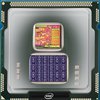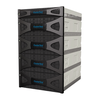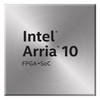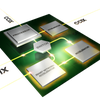Intel Labs has developed a neuromorphic processor that researchers there believe can perform machine learning faster and more efficiently than that of conventional architectures like GPUs or CPUs. The new chip, codenamed Loihi, has been six years in the making.
Episode 193: Addison Snell and Michael Feldman discuss DARPA's latest initiative and the upgrade to Tianhe-2.
On Monday, Cray announced it had completed the acquisition of Seagates ClusterStor business and would begin transitioning the new storage line into its array of HPC offerings.
Paderborn University, in Germany, has announced it has been selected to host an Intel cluster, powered by Intel Xeon CPUs and Arria 10 FPGAs.
Cray has announced three new supercomputers in Asia: one in the pipeline that will be installed in South Korea next year, and two Japanese systems that went into production earlier this week.
The number two-ranked Tianhe-2 supercomputer, installed at the National Super Computer Center in Guangzhou, is being upgraded to 94.97 petaflops, nearly doubling its current peak performance of 54.9 petaflops.
Moores Law, the engine that has driven the electronics industry for the past 50 years, is running on fumes. But DARPA, the US Defense Advanced Project Agency, is looking to refill the gas tank with new research initiatives, backed by a $216 million investment.
Researchers at Argonne National Laboratory are going to be using the Theta supercomputer to generate a map of all the neural connections in a brain.
Taiwan Semiconductor Manufacturing Company (TSMC) is collaborating with Xilinx, Cadence Design Systems, and ARM to develop a test chip that support the new high performance interconnect standard, known as CCIX.
Episode 192: Addison Snell and Michael Feldman discuss HPC announcements coming out of Huawei Connect 2017 and the EU's latest Exascale project.








